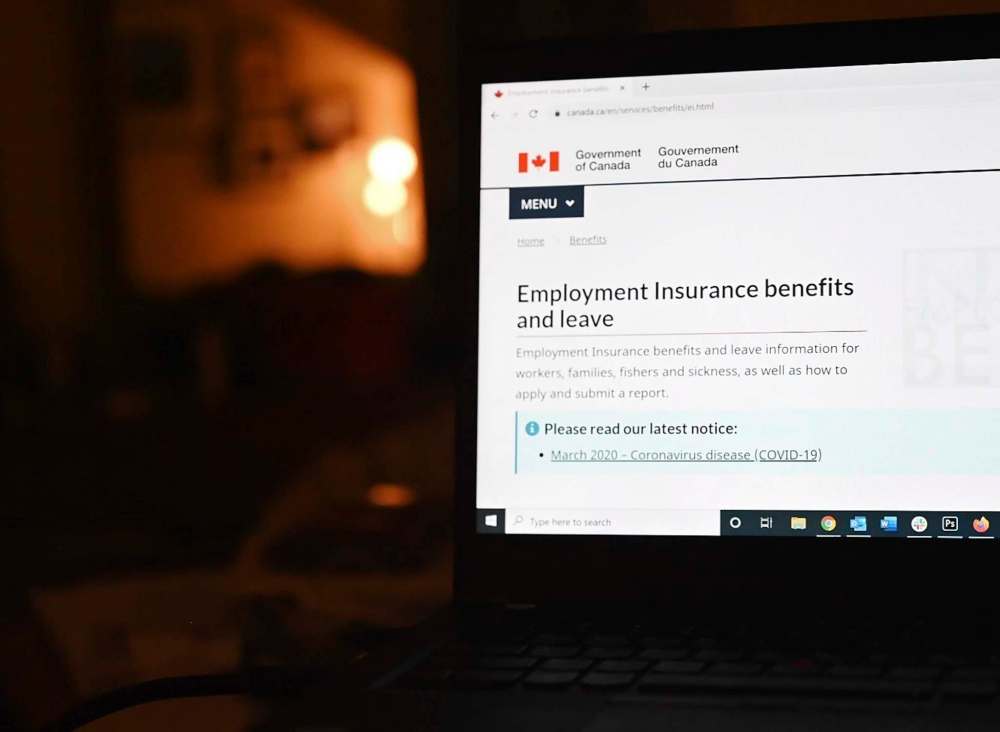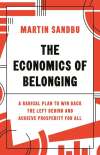Draft bill proposed to penalize CERB fraud
Advertisement
Read this article for free:
or
Already have an account? Log in here »
To continue reading, please subscribe:
Monthly Digital Subscription
$0 for the first 4 weeks*
- Enjoy unlimited reading on winnipegfreepress.com
- Read the E-Edition, our digital replica newspaper
- Access News Break, our award-winning app
- Play interactive puzzles
*No charge for 4 weeks then price increases to the regular rate of $19.00 plus GST every four weeks. Offer available to new and qualified returning subscribers only. Cancel any time.
Monthly Digital Subscription
$4.75/week*
- Enjoy unlimited reading on winnipegfreepress.com
- Read the E-Edition, our digital replica newspaper
- Access News Break, our award-winning app
- Play interactive puzzles
*Billed as $19 plus GST every four weeks. Cancel any time.
To continue reading, please subscribe:
Add Free Press access to your Brandon Sun subscription for only an additional
$1 for the first 4 weeks*
*Your next subscription payment will increase by $1.00 and you will be charged $16.99 plus GST for four weeks. After four weeks, your payment will increase to $23.99 plus GST every four weeks.
Read unlimited articles for free today:
or
Already have an account? Log in here »
Hey there, time traveller!
This article was published 09/06/2020 (2011 days ago), so information in it may no longer be current.
Some restaurants and businesses struggling to reopen after months of being closed owing to COVID-19 are now finding it hard to entice workers back.
Some have found they are making more money by staying home and continuing to earn federal emergency benefits.
And it is forcing the federal government to begin to take action against workers who submit fraudulent claims for the Canada Emergency Response Benefit.

A draft bill first reported by The Globe and Mail is looking at putting in place “punishment” and “imprisonment” for anyone intentionally misusing the benefit. The draft bill could be tabled as soon as next week.
Penalties for hiding income and intentionally making misleading statements to get the CERB would be on a sliding scale, topping out at $21,000 and six months of jail time.
“We need to make sure people get back to work to get our economy rolling again.”–Jonathan Alward
Jonathan Alward, Prairie region director of the Canadian Federation of Independent Business, said he is pleased to hear about the planned legislation.
“There have been challenges facing employees trying to get people back,” Alward said Monday.
“They say there have been problems with public transit, finding daycare is another, and are you more at risk, so hesitant about going back, but by far the most prevalent issue is… employees’ preference to stay on the CERB.
“We need to make sure people get back to work to get our economy rolling again.”
As of the weekend, Ottawa had paid out $45 billion in CERB benefits since the program began in mid-March. The benefit, which provides $2,000 every four weeks, can be received for a maximum of 16 weeks but it stops when an employee goes back to work full time.
Alward said the problem is that for many employees, the CERB is an incentive to stay home.
“If they are making minimum wage, they can be making as much or more on the CERB,” he said.
The legislation would also bar anyone who turns down a reasonable job offer when they are able to work or fails to return to work when it is reasonable to do so.
The legislation is a direct result of demands from opposition parties. The Conservatives have been asking for better enforcement, while the Bloc Québécois argued the CERB creates incentives for workers to not return to work.
The NDP, meanwhile, have argued eligibility criteria for the CERB have been too restrictive.
Shaun Jeffrey, executive director of the Manitoba Restaurant and Foodservice Association, said so far it hasn’t been hard for restaurants to get enough employees to come back to work, but that could change as the provincial government continues to gradually reopen the economy.
“I hope people have common sense and go back to a job offered to them.”–Shaun Jeffrey
“We’re only at 50 per cent capacity, so many restaurants are not fully open or have only been open for a couple of days,” Jeffrey said.
“The restaurant manager can ask an employee and if they say no they’ll go to the next person — that’s relatively easy now. But then they get to Phase 3 and they are open to higher capacity that’s when they’ll find it more difficult.
“I hope people have common sense and go back to a job offered to them. It was tough to find a job out there in both a pre- and post-COVID world.”
kevin.rollason@freepress.mb.ca
dylan.robertson@freepress.mb.ca

Kevin Rollason is one of the more versatile reporters at the Winnipeg Free Press. Whether it is covering city hall, the law courts, or general reporting, Rollason can be counted on to not only answer the 5 Ws — Who, What, When, Where and Why — but to do it in an interesting and accessible way for readers.
Our newsroom depends on a growing audience of readers to power our journalism. If you are not a paid reader, please consider becoming a subscriber.
Our newsroom depends on its audience of readers to power our journalism. Thank you for your support.
History
Updated on Tuesday, June 9, 2020 11:43 AM CDT: Clarifies NDP position.






